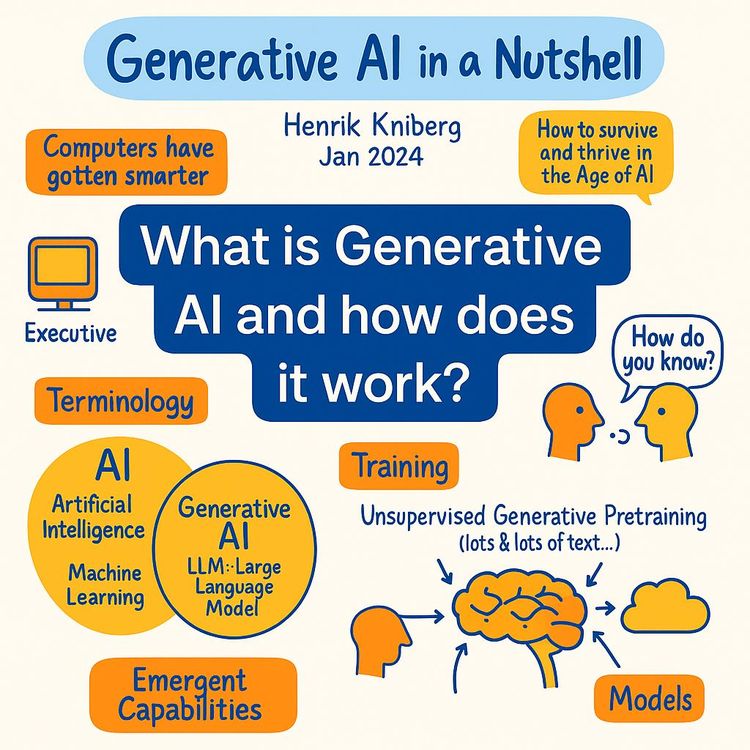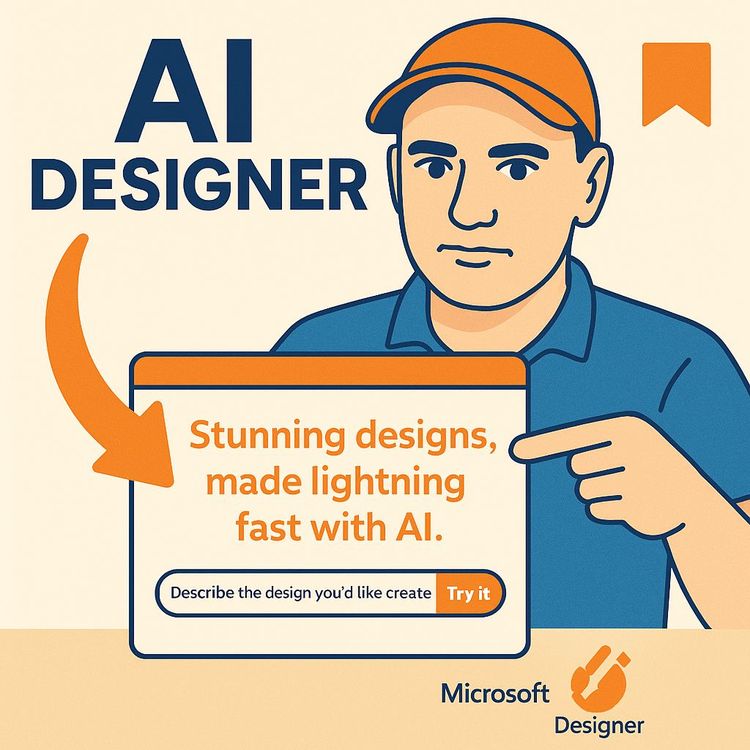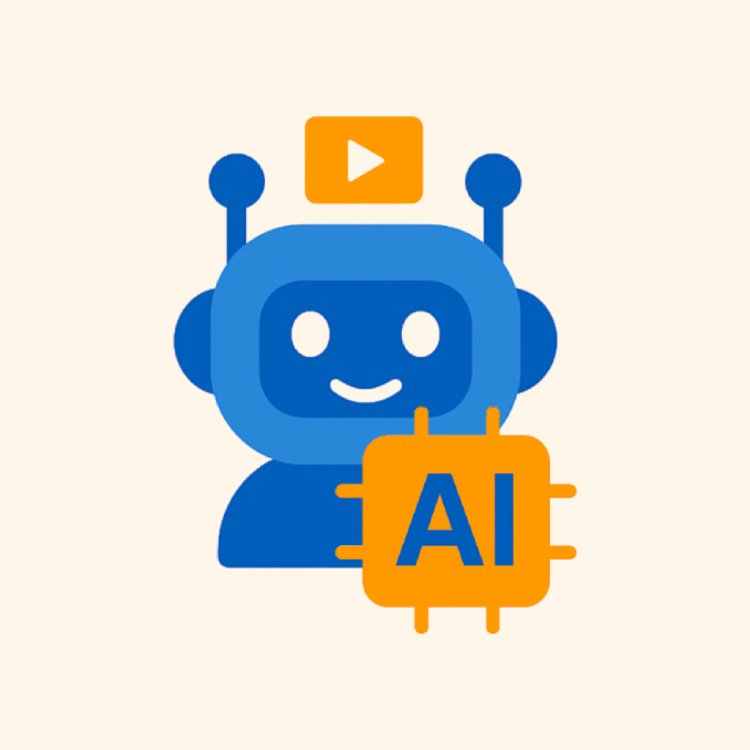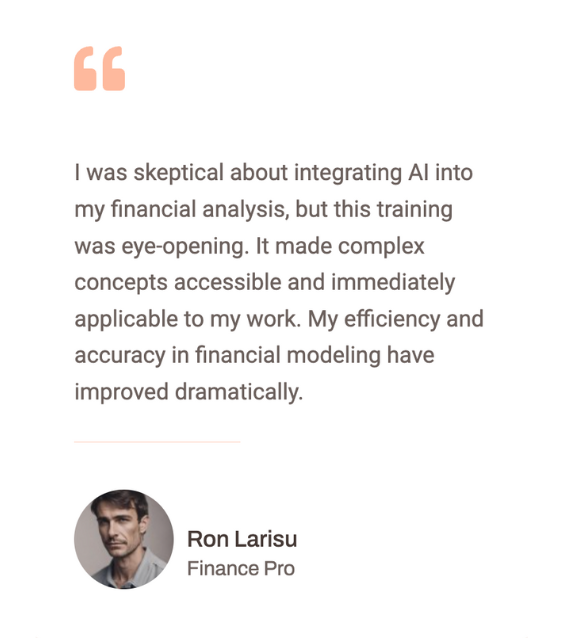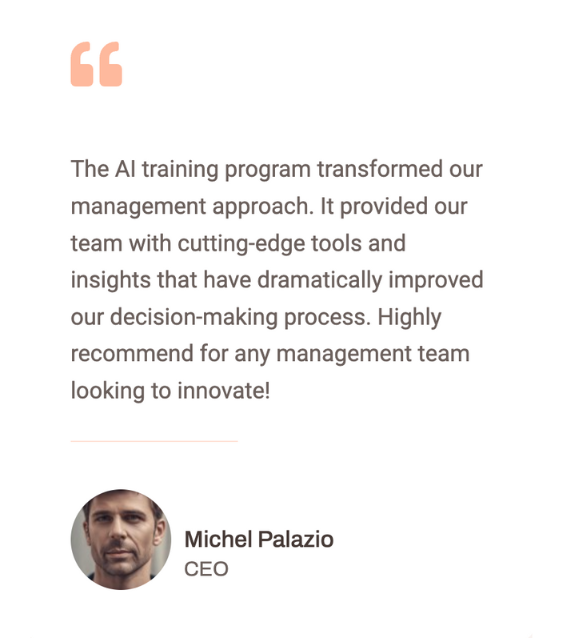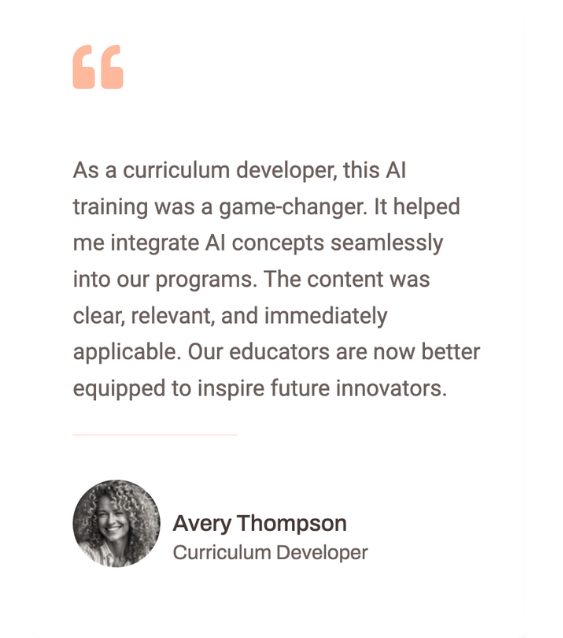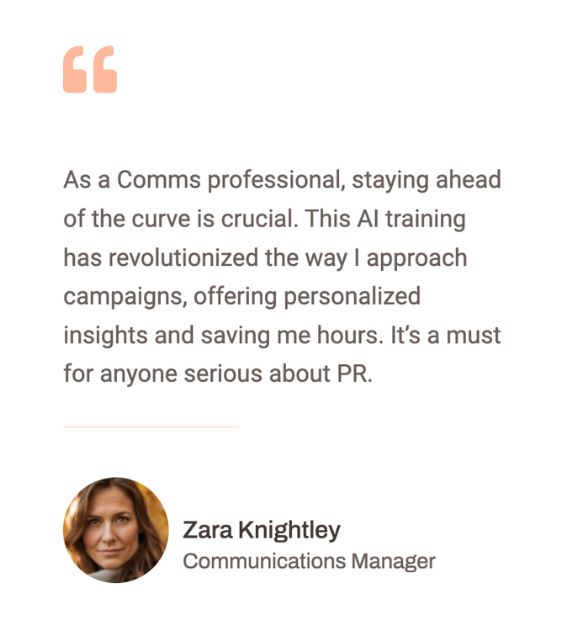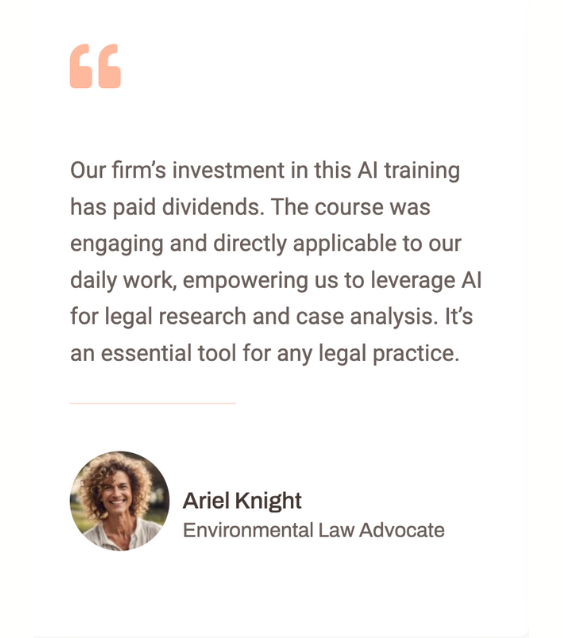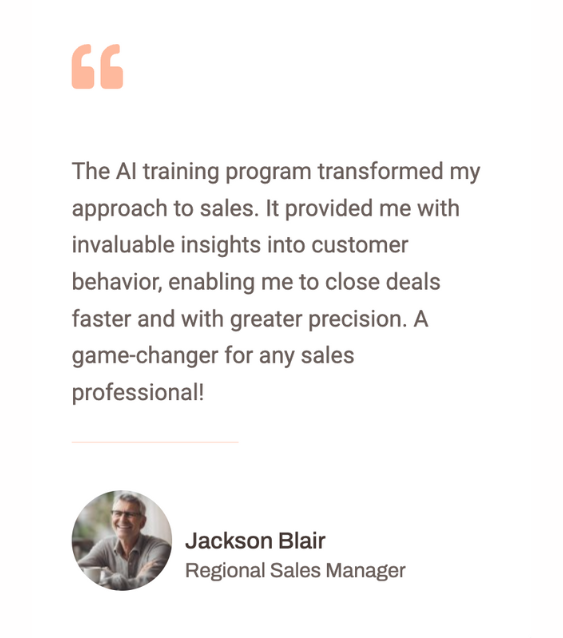Video Course: Understanding th difference between a Data Scientist vs. AI Engineer
Dive into the evolving roles of Data Scientists and AI Engineers. Discover how each navigates the AI landscape with unique skills, tools, and data types, equipping you to make informed career or business decisions.
Related Certification: Certification: Distinguishing Roles of Data Scientists and AI Engineers
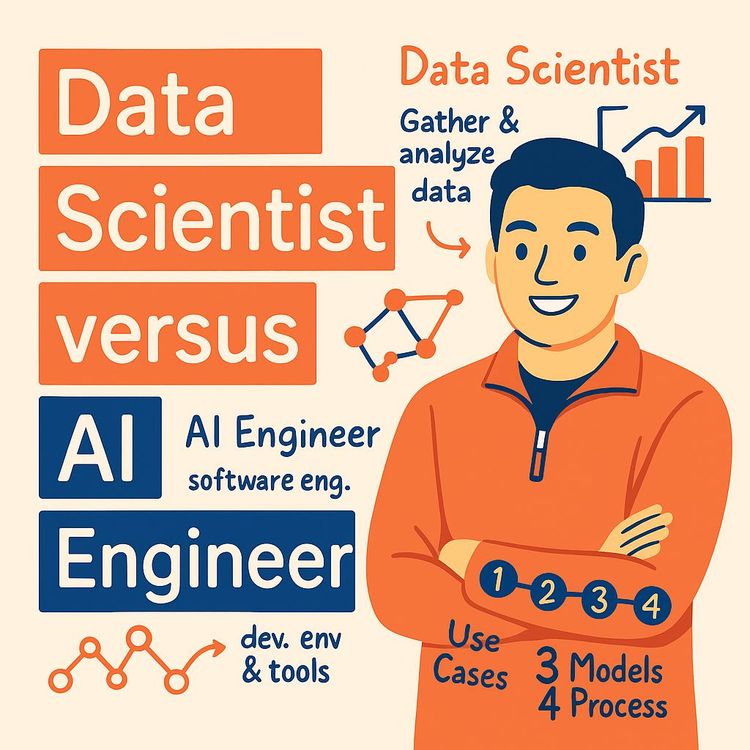
Also includes Access to All:
What You Will Learn
- Differentiate the roles of Data Scientist and AI Engineer
- Compare structured vs. unstructured data workflows
- Understand foundation models and prompt engineering
- Identify descriptive/predictive vs. prescriptive/generative use cases
- Explain development, deployment, and collaboration patterns
Study Guide
Introduction
Welcome to the comprehensive guide on understanding the difference between a Data Scientist and an AI Engineer. In this course, we will delve into the nuances that distinguish these two pivotal roles in the realm of artificial intelligence. As AI continues to evolve, the roles of Data Scientists and AI Engineers have become more defined, especially with the advent of generative AI. This course aims to provide you with a thorough understanding of each role, their applications, and how they contribute to the AI landscape. Whether you're a business leader, a tech enthusiast, or someone exploring a career in AI, this guide will equip you with the knowledge to navigate these roles effectively.
The Impact of Generative AI
Generative AI has been a game changer in the field of artificial intelligence. It has catalyzed the differentiation between Data Scientists and AI Engineers, creating a new domain known as AI Engineering. Generative AI involves the use of foundation models that enable capabilities beyond traditional analytical and predictive tasks, necessitating a specialized engineering focus.
Example 1: Consider the development of a chatbot that can engage in human-like conversations. A Data Scientist might analyze conversation data to predict user satisfaction, whereas an AI Engineer would build the underlying AI system using a foundation model capable of generating responses.
Example 2: In the field of content creation, a Data Scientist might analyze audience data to predict content trends, while an AI Engineer could develop an AI model that generates articles or social media posts based on those trends.
Use Cases: Data Scientist vs. AI Engineer
The roles of Data Scientists and AI Engineers are distinguished by their use cases. Let's explore these differences in detail.
Data Scientist: The Data Storyteller
Data Scientists focus on extracting insights from data using mathematical models. Their primary use cases include:
- Descriptive Analytics: Understanding past data through techniques like Exploratory Data Analysis (EDA) and clustering. For example, a Data Scientist might segment customers based on purchasing behavior to tailor marketing strategies.
- Predictive Analytics: Forecasting future outcomes using machine learning models such as regression and classification. For instance, predicting future sales based on historical data.
AI Engineer: The AI System Builder
AI Engineers leverage foundation models to create generative AI systems that transform business processes. Their use cases include:
- Prescriptive Analytics: Determining the best course of action using techniques like decision optimization and recommendation engines. For example, optimizing supply chain logistics based on predictive models.
- Generative Use Cases: Creating intelligent assistants and chatbots for conversational search and content summarization. An AI Engineer might develop a virtual assistant that can schedule meetings and send reminders.
Data Focus: Structured vs. Unstructured
The type and scale of data handled by Data Scientists and AI Engineers differ significantly.
Data Scientist: Structured Data
Data Scientists primarily work with structured data, also known as tabular data. This data often involves hundreds to hundreds of thousands of observations and requires significant cleaning and pre-processing.
Example 1: A Data Scientist might analyze sales data from a retail store, which is typically structured in tables with columns like date, product, and sales amount.
Example 2: In healthcare, a Data Scientist might work with patient data to identify trends in treatment outcomes, using structured datasets from electronic health records.
AI Engineer: Unstructured Data
AI Engineers primarily work with unstructured data such as text, images, videos, and audio files. The scale of data involved in training foundation models is significantly larger.
Example 1: An AI Engineer developing a language model might work with billions of tokens of text data from books, articles, and websites.
Example 2: In the field of computer vision, an AI Engineer might train a model using millions of images to develop an application that can recognize objects in photos.
Underlying Models: Toolbox vs. Foundation
The models and algorithms employed by each role differ significantly.
Data Scientist: Diverse Toolbox
Data Scientists utilize a broad toolbox of hundreds of different models and algorithms. These models are typically tailored to specific use cases and have a more narrow scope of generalization.
Example 1: A Data Scientist might use a decision tree model to classify customer feedback as positive or negative.
Example 2: In finance, a Data Scientist might use a time series model to forecast stock prices based on historical data.
AI Engineer: Foundation Models
AI Engineers primarily work with foundation models, which are revolutionary due to their ability to generalize to a wide range of tasks without having to be retrained.
Example 1: An AI Engineer might use a foundation model to develop a translation application that can convert text between multiple languages without needing separate models for each language pair.
Example 2: In the gaming industry, an AI Engineer might use a foundation model to create non-player characters that can interact with players in a realistic manner.
Development Processes: Linear vs. Generative AI
The processes involved in building solutions also vary between Data Scientists and AI Engineers.
Data Science Process: Linear Progression
The data science process typically involves a linear progression from identifying a use case, selecting and preparing data, training and validating a specific model, and finally deploying the model for real-time prediction and inference.
Example 1: A Data Scientist working on a fraud detection system might start by identifying relevant transaction data, then train a classification model to detect fraudulent transactions.
Example 2: In marketing, a Data Scientist might develop a model to predict customer churn, following a step-by-step process from data collection to model deployment.
Generative AI Process: AI Democratization
The generative AI process often starts with a use case and then directly leverages pre-trained foundation models. AI Engineers interact with these models using prompt engineering to guide them to perform various tasks.
Example 1: An AI Engineer might develop a virtual assistant by chaining prompts to perform tasks like setting reminders and answering questions.
Example 2: In content creation, an AI Engineer might use prompt engineering to generate creative writing pieces based on a few input sentences.
Overlap and Evolution
Despite the distinctions, there is still overlap between the two fields. Data Scientists may work on prescriptive use cases, and AI Engineers might engage with structured data. Both fields are rapidly evolving, with constant advancements in research, models, and tools.
Example 1: A Data Scientist might develop a recommendation system, a task typically associated with prescriptive analytics.
Example 2: An AI Engineer might use structured data to fine-tune a foundation model for a specific application.
Conclusion
By now, you should have a comprehensive understanding of the differences between a Data Scientist and an AI Engineer. These roles, while distinct, are integral to the advancement of artificial intelligence. Data Scientists continue to focus on extracting insights and making predictions using diverse, often smaller-scale models and structured data. Meanwhile, AI Engineers are at the forefront of building complex AI systems powered by large, general-purpose foundation models and primarily dealing with unstructured data. As you move forward, remember the importance of thoughtful application of these skills in leveraging the power of AI for your organization or personal projects.
Podcast
There'll soon be a podcast available for this course.
Frequently Asked Questions
Introduction
Welcome to the FAQ section for the course "Understanding the Difference Between a Data Scientist vs. AI Engineer." This resource is designed to address common questions and concerns about the roles of Data Scientists and AI Engineers, especially in the context of generative AI. Whether you're a beginner or a seasoned professional, this FAQ aims to clarify the distinctions, overlaps, and practical applications of these two critical roles in the AI landscape.
What distinguishes an AI Engineer from a Data Scientist, especially in the context of generative AI?
Data Scientists are often described as data storytellers. They use mathematical models to interpret vast amounts of real-world data, focusing on descriptive and predictive analytics. AI Engineers, particularly those working with generative AI, are more like system builders. They leverage foundation models to create systems that transform business processes, focusing on prescriptive and generative use cases.
How do the primary use cases differ between Data Scientists and AI Engineers?
Data Scientists engage in descriptive (understanding past data) and predictive use cases (forecasting future outcomes). AI Engineers focus on prescriptive (recommending optimal actions) and generative use cases (creating intelligent assistants and chatbots using foundation models).
What types of data do Data Scientists and AI Engineers typically work with?
Data Scientists primarily work with structured data in tabular formats, which requires significant cleaning and pre-processing. AI Engineers, however, deal mostly with unstructured data like text, images, and audio, especially when using large language models (LLMs).
How do the underlying models and their characteristics differ between the two roles?
Data Scientists use a wide array of machine learning models that are narrowly focused and smaller in size, requiring less computational power. AI Engineers work with foundation models, which are larger and can generalize across tasks without retraining, demanding substantial computational resources.
What are the key differences in the development process employed by Data Scientists and AI Engineers?
The data science process involves identifying a use case, preparing data, training a model, and deploying it. AI Engineers leverage pre-trained foundation models, utilizing techniques like prompt engineering to build larger AI systems without extensive data collection and training from scratch.
What is the significance of "Foundation Models" in the context of AI Engineering?
Foundation models are crucial for AI Engineering as they can generalize across multiple tasks without needing retraining. This allows AI Engineers to rapidly prototype and build sophisticated AI systems by interacting with these models using techniques like prompt engineering.
What is "AI democratisation" and how does it impact the work of AI Engineers?
"AI democratisation" refers to making powerful AI models accessible to a broader audience. This enables AI Engineers to leverage pre-trained foundation models, reducing the need for extensive data collection and model training, thus speeding up development cycles.
Despite the distinctions, are there any areas of overlap between the roles of Data Scientists and AI Engineers?
Yes, there is overlap. Data Scientists may work on prescriptive use cases, and AI Engineers might encounter structured data. Both fields are rapidly evolving, and the roles may continue to converge in certain areas over time.
What recent development in AI led to the emergence of AI Engineering as a distinct field?
The advent of generative AI and its groundbreaking capabilities have led to the emergence of AI Engineering as a distinct field. These advancements have expanded the boundaries of AI applications.
What is the primary focus or goal of a Data Scientist in terms of data and analysis?
A Data Scientist is primarily a data storyteller who uses mathematical models to translate large, complex datasets into meaningful insights and understanding.
What is the main objective of an AI Engineer when working with AI models?
An AI Engineer is primarily an AI system builder who leverages foundation models to create generative AI systems aimed at transforming various business processes and workflows.
Give an example of a predictive use case that a Data Scientist might work on, and explain its purpose.
An example of a predictive use case is using regression models to forecast future revenue based on historical sales data and other relevant factors. This helps businesses plan and allocate resources effectively.
What are foundation models, and why are they considered revolutionary in AI Engineering?
Foundation models are large, pre-trained AI models that can generalize to a wide variety of tasks without needing retraining for each specific application. This makes them revolutionary by simplifying and accelerating AI development.
What type of data do Data Scientists primarily work with, and how does it contrast with the data used by AI Engineers?
Data Scientists often work with structured data (tabular data), whereas AI Engineers frequently deal with unstructured data like text, images, and audio files.
Describe the traditional data science process for developing solutions.
The traditional data science process involves starting with a use case, selecting and preparing data, training and validating a model using techniques like cross-validation, and then deploying the model for inference.
How does the generative AI development process differ from the traditional data science process?
The generative AI process often skips directly to working with a pre-trained foundation model due to AI democratisation, which makes these powerful models widely accessible. AI Engineers then use techniques like prompt engineering.
What is prompt engineering, and why is it a significant technique in the work of an AI Engineer?
Prompt engineering involves designing effective natural language prompts to guide foundation models in generating desired outputs. It's significant because it allows AI Engineers to leverage the capabilities of large models without extensive retraining.
Explain the difference between descriptive and prescriptive analytics.
Descriptive analytics involves summarizing past data to understand what has happened, often using techniques like exploratory data analysis. Prescriptive analytics recommends optimal actions based on data insights, often using decision optimization and recommendation engines.
What are the common challenges faced by Data Scientists?
Data Scientists often face challenges such as data cleaning and pre-processing, selecting appropriate models, and ensuring model interpretability. They must also deal with data privacy and ethical considerations.
How do AI Engineers handle unstructured data?
AI Engineers use advanced techniques and models like large language models to process and analyze unstructured data. They leverage foundation models that have been pre-trained on vast datasets to handle diverse data types like text and images.
What skills are essential for a Data Scientist?
Essential skills for a Data Scientist include strong statistical and analytical abilities, proficiency in programming languages like Python or R, and experience with data visualization tools. Understanding machine learning algorithms and data wrangling techniques is also crucial.
What skills are essential for an AI Engineer?
An AI Engineer should have a strong background in programming, knowledge of AI and machine learning frameworks, and experience with cloud computing. Skills in deploying AI models and understanding of AI ethics are also important.
How can businesses benefit from the work of AI Engineers?
Businesses can benefit from AI Engineers by implementing AI systems that automate processes, improve decision-making, and enhance customer experiences. AI Engineers can help create innovative solutions like chatbots and recommendation systems that drive business growth.
What ethical considerations should AI Engineers keep in mind?
AI Engineers should consider data privacy, bias in AI models, and the potential impact of AI systems on employment and society. Ensuring transparency and accountability in AI systems is crucial for ethical AI development.
How do Data Scientists and AI Engineers collaborate in a business setting?
Data Scientists and AI Engineers often collaborate by combining their expertise to develop comprehensive AI solutions. Data Scientists provide insights and models, while AI Engineers focus on system integration and deployment, ensuring the solution is scalable and efficient.
What are the future trends in AI Engineering and Data Science?
Future trends include the increasing use of foundation models, advancements in AI ethics and regulation, and the integration of AI with other technologies like IoT. The roles of Data Scientists and AI Engineers may continue to evolve, with more emphasis on collaboration and interdisciplinary skills.
How can one transition from a Data Scientist to an AI Engineer?
Transitioning from a Data Scientist to an AI Engineer involves gaining skills in AI system deployment, understanding foundation models, and becoming proficient in AI frameworks and cloud computing. Continuous learning and hands-on experience with AI projects are essential.
Certification
About the Certification
Show the world you have AI skills. This certification clarifies the unique expertise of Data Scientists and AI Engineers, helping you confidently communicate your professional strengths in a rapidly evolving technology landscape.
Official Certification
Upon successful completion of the "Certification: Distinguishing Roles of Data Scientists and AI Engineers", you will receive a verifiable digital certificate. This certificate demonstrates your expertise in the subject matter covered in this course.
Benefits of Certification
- Enhance your professional credibility and stand out in the job market.
- Validate your skills and knowledge in cutting-edge AI technologies.
- Unlock new career opportunities in the rapidly growing AI field.
- Share your achievement on your resume, LinkedIn, and other professional platforms.
How to complete your certification successfully?
To earn your certification, you’ll need to complete all video lessons, study the guide carefully, and review the FAQ. After that, you’ll be prepared to pass the certification requirements.
Join 20,000+ Professionals, Using AI to transform their Careers
Join professionals who didn’t just adapt, they thrived. You can too, with AI training designed for your job.

